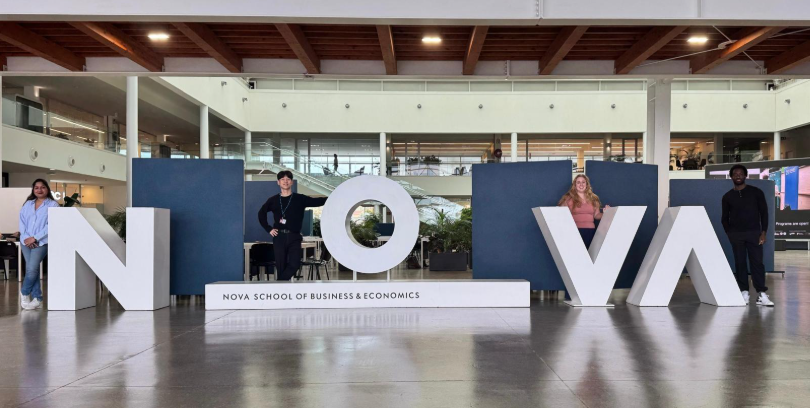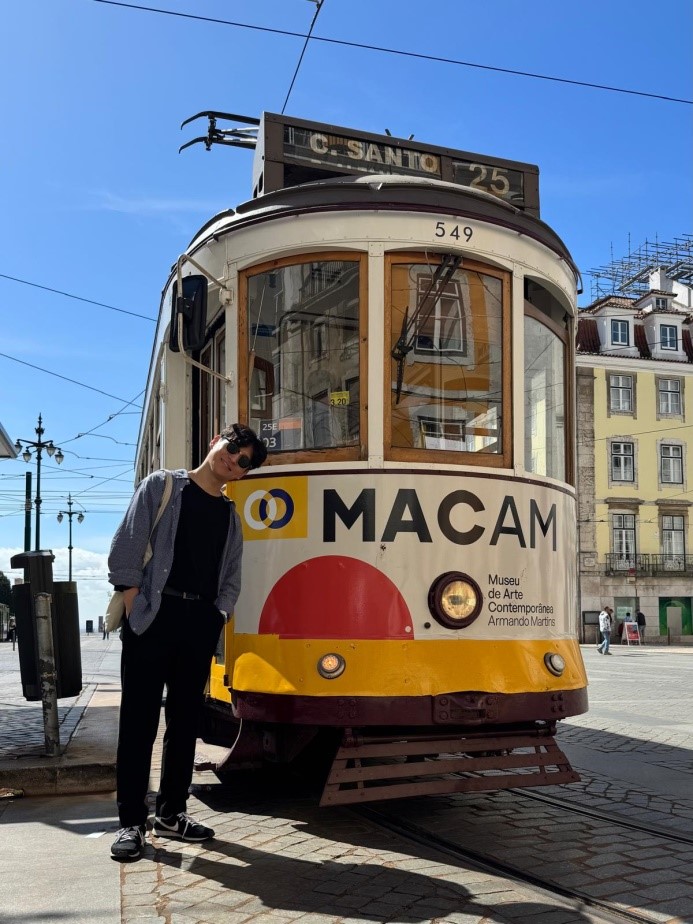My International Elective journey: sustainability, innovation and culture at Nova SBE
In this blog, Gwangyong reflects on his transformative experience participating in the Managing Conscious Capitalism elective at Nova School of Business and Economics in Lisbon, as part of the Warwick Business School Full-time MBA. From cutting-edge insights on sustainability and AI to rich cultural immersion, Gwangyong offers a firsthand account of how the elective deepened his understanding of purposeful leadership in a global context.
Participating in the Managing Conscious Capitalism elective module at Nova School of Business and Economics (Nova SBE), Portugal, as part of the Full-time MBA at Warwick Business School (WBS) was a transformative experience that deepened my understanding of sustainable business and left me with vivid memories of Lisbon’s unique culture and innovation ecosystem. Here, I share some of the most impressive aspects of my journey both inside and outside the lecture room.

Sustainability at the heart of Nova SBE
Nova SBE stands out for its holistic and actionable approach to sustainability. The campus itself is a living example of environmental harmony, seamlessly integrated with its Carcavelos neighbourhood and the Atlantic coastline. The design encourages open interaction with the local community, fostering a sense of shared responsibility for both social and environmental well-being.
Nova SBE’s commitment goes beyond campus boundaries. It actively engages students, startups, and community members in co-creating solutions for sustainable cities and business models, in line with the European Green Deal and the UN Sustainable Development Goals.
The curriculum reflected this ethos. Sessions on sustainable finance, ESG integration, and leadership for impact were not just theoretical. They were grounded in real-world examples and site visits. For instance, learning from Professor Rodrigo Tavares about how sustainability is now a core driver of financial performance and innovation, not just a compliance requirement, was particularly eye-opening. The programme illustrated how sustainability can increase efficiency, reduce costs, drive innovation, and enhance reputation, making it a true business imperative, not a trade-off.
Industry insights: AI and sustainability at Accenture and BPI
A major highlight of the elective were our visits to Accenture and BPI (Banco Português de Investimento), where we witnessed first-hand how Portuguese industry leaders are leveraging technology for sustainability.
At Accenture, we talked about AI-driven solutions for decarbonising supply chains, real-time emissions tracking, and predictive analytics for resource optimisation. At BPI, the focus was on sustainable finance. The bank integrates AI to assess ESG risks within its lending portfolio and dynamically adjusts financing terms based on environmental performance. Their green bonds fund renewable energy projects, with AI algorithms evaluating climate data to ensure alignment with Portugal’s carbon-neutrality targets.
These site visits highlighted how Portugal’s compact market enables rapid piloting of sustainability innovations and how AI is becoming a catalyst for systemic change, transforming regulatory compliance into strategic advantage.

Cultural immersion: Lisbon’s charm
Lisbon’s vibrant culture was an integral part of the experience. Walking through the city’s historic quarters on the iconic yellow tram was both nostalgic and energising. There’s something magical about gliding through narrow streets, past tiled facades, and then stepping off to enjoy a freshly baked pastel de nata (the city’s legendary custard tart). These moments of simple pleasure, shared with classmates, made the city come alive and offered a taste of Lisbon’s sustainable, community-oriented lifestyle.
A culinary highlight was dining at Kitchen Dates, a pioneering sustainable restaurant in Lisbon’s food scene. Their commitment to zero waste and local sourcing was evident in every detail, from the menu design to the kitchen operations. I’ll never forget tasting their kimchi ravioli paired with a delicate Portuguese rosé wine. It was a dish that beautifully combined global flavours with local ingredients, showing how food can be both creative and sustainable.
Personal takeaways
This elective fundamentally reshaped my perspective on business leadership. I learned that conscious capitalism is about balancing purpose, stakeholder engagement, cultural resilience, and ethical governance. The programme equipped me with practical frameworks and real-world examples to champion sustainability in my own career, reinforcing the idea that doing well and doing good are not mutually exclusive but mutually reinforcing.
Nova SBE’s model, where campus, curriculum, and community converge, demonstrates that business can be a force for regeneration, not merely profit. For any aspiring leader, the Nova SBE international elective experience offers a blueprint for impactful, sustainable leadership in an increasingly complex world.




 X
X Facebook
Facebook LinkedIn
LinkedIn YouTube
YouTube Instagram
Instagram Tiktok
Tiktok